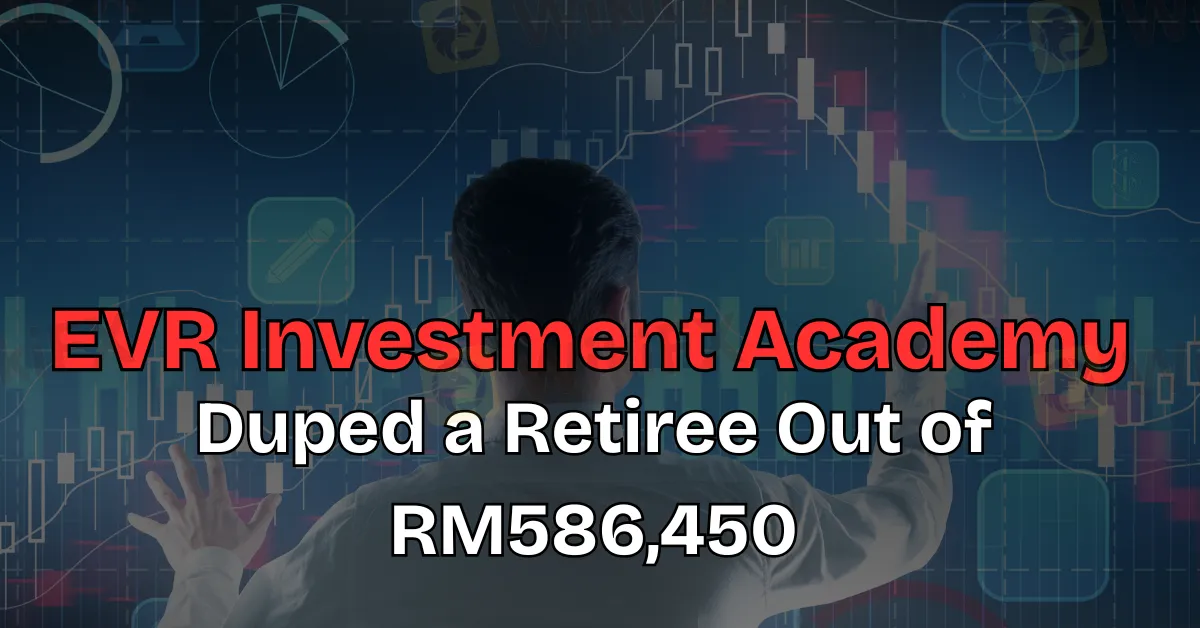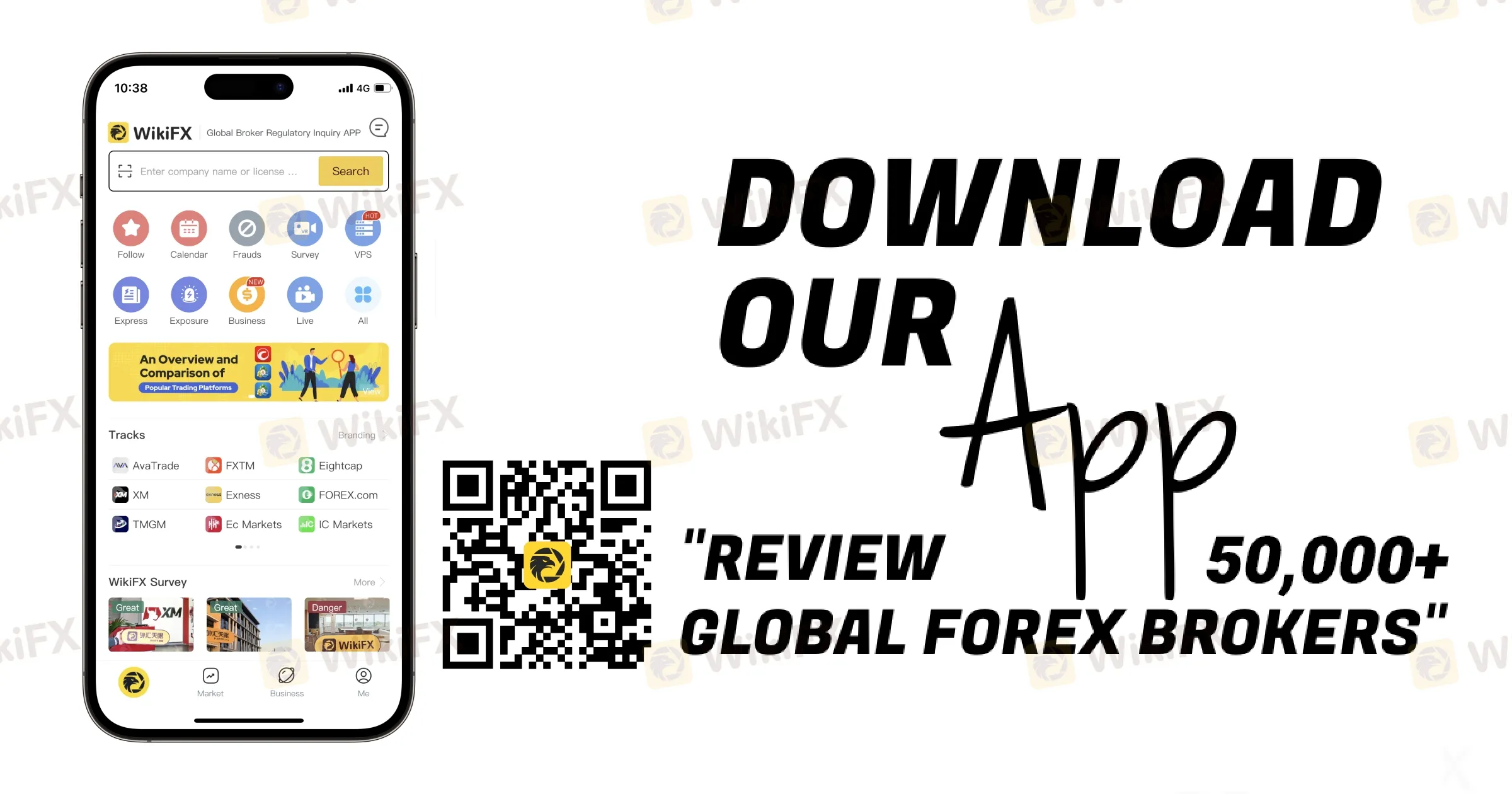简体中文
繁體中文
English
Pусский
日本語
ภาษาไทย
Tiếng Việt
Bahasa Indonesia
Español
हिन्दी
Filippiiniläinen
Français
Deutsch
Português
Türkçe
한국어
العربية
EVR Investment Academy Duped a Retiree Out of RM586,450
Abstract:A 50-year-old Malaysian retiree has lost RM586,450 to EVR Investment Academy, which operates as a fake investment ‘academy’ that promises high returns through a non-existent trading platform.

A 50-year-old Malaysian retiree has become the latest victim of a scam orchestrated by a fake investment syndicate operating under the name EVR Investment Academy. The individual was deceived into transferring RM586,450 to fraudsters who promised high returns through a non-existent trading platform.
The deception began when the victim received an unsolicited WhatsApp message from a sender claiming to represent EVR Investment Academy. The message offered an invitation to participate in nightly virtual stock market briefings, conducted from Sunday to Thursday via Zoom. These sessions were portrayed as educational seminars providing exclusive insights into market trends and trading strategies.

As part of the programme, participants were encouraged to use a trading platform known as QC Secure, which was promoted as a Direct Market Access (DMA) tool offering enhanced trading privileges. The retiree was persuaded to invest in financial products falsely branded as ‘Al Palsu’ and ‘QTI Luxaigo’ through this fictitious platform.
Over time, the victim transferred large sums of money into accounts provided by the scammers, believing the funds were being used for legitimate investments. The fraudulent nature of the scheme became apparent only after a personal investigation revealed that entities such as PJT Investment Academy and Boom S Trading Platform, repeatedly referenced by the scammers, had no legal or operational presence.
The case highlights a growing trend of fraudsters leveraging digital tools such as messaging apps and video conferencing to lend credibility to their scams. These operations blur the lines between legitimate finance and fraud by simulating professional investment environments and using convincing ‘testimonials’.
As scams like this become more complex, platforms such as WikiFX are playing an increasingly important role in consumer protection. WikiFX offers a robust suite of tools to verify the legitimacy of financial brokers and trading platforms. Its global database includes regulatory information, broker profiles, and user reviews that help users make informed decisions before investing.

The app also issues risk alerts and identifies unlicensed or suspicious entities, helping users spot potential scams early. By providing transparent and updated information, WikiFX empowers investors to avoid falling prey to elaborate frauds like the one perpetrated by the EVR syndicate.

Disclaimer:
The views in this article only represent the author's personal views, and do not constitute investment advice on this platform. This platform does not guarantee the accuracy, completeness and timeliness of the information in the article, and will not be liable for any loss caused by the use of or reliance on the information in the article.
Read more

What Happens If You Trade on Illegal Forex Platforms in India?
There are many illegal platforms that offer financial services to clients. These scammers hide the risks involved because their main goal is to steal your money. That’s why it’s so important to understand the dangers of trading on illegal forex platforms

Exposing Trade Capital Limited - Siphoning Millions, Restricting Withdrawals, Charging Extra Fees
Trade Capital Limited is in the news for conducting bad practices as a forex broker. Check out the unethical practices employed by it to scam investors in this article.

5 Serious Warnings About Mirrox! You Can’t Afford to Ignore
Pay Attention! This is a serious warning you shouldn't ignore. Check out this article and know the 5 red flags about the Mirrox that every trader must be aware of.

FXPRIMUS: 5 Things They Don’t Want You to Know
Only scam brokers never disclose the risks present in their trading platforms to their clients. They hide all red flags and aggressively promote their services and products. In this article, you’ll discover the 5 major warnings about FXPRIMUS that you must know before choosing this forex broker .
WikiFX Broker
Latest News
Global stock markets are calling Trump's bluff on tariffs
Trump's tariffs overshadow the pomp and pageantry as Macron meets King Charles
Boeing delivers most airplanes since late 2023 after ramping up 737 Max output
Inflation expectations drift back down to pre-tariff levels, New York Fed survey shows
10 Unlicensed Brokers Exposed – Check Now to Stay Safe!
Exposed: Ibell Markets - A Scam Broker That Does Not Allow Withdrawals
Gold Prices to Fluctuate This Week Amid July 9 Tariff Deadline, Fed Policy
America's Deficit Reckoning: How the U.S. debt spiral could spark a crisis
Treasury yields hold steady as Trump extends tariff deadline
Asia-Pacific markets mostly rise as investors assess Trump's steep tariffs
Currency Calculator


